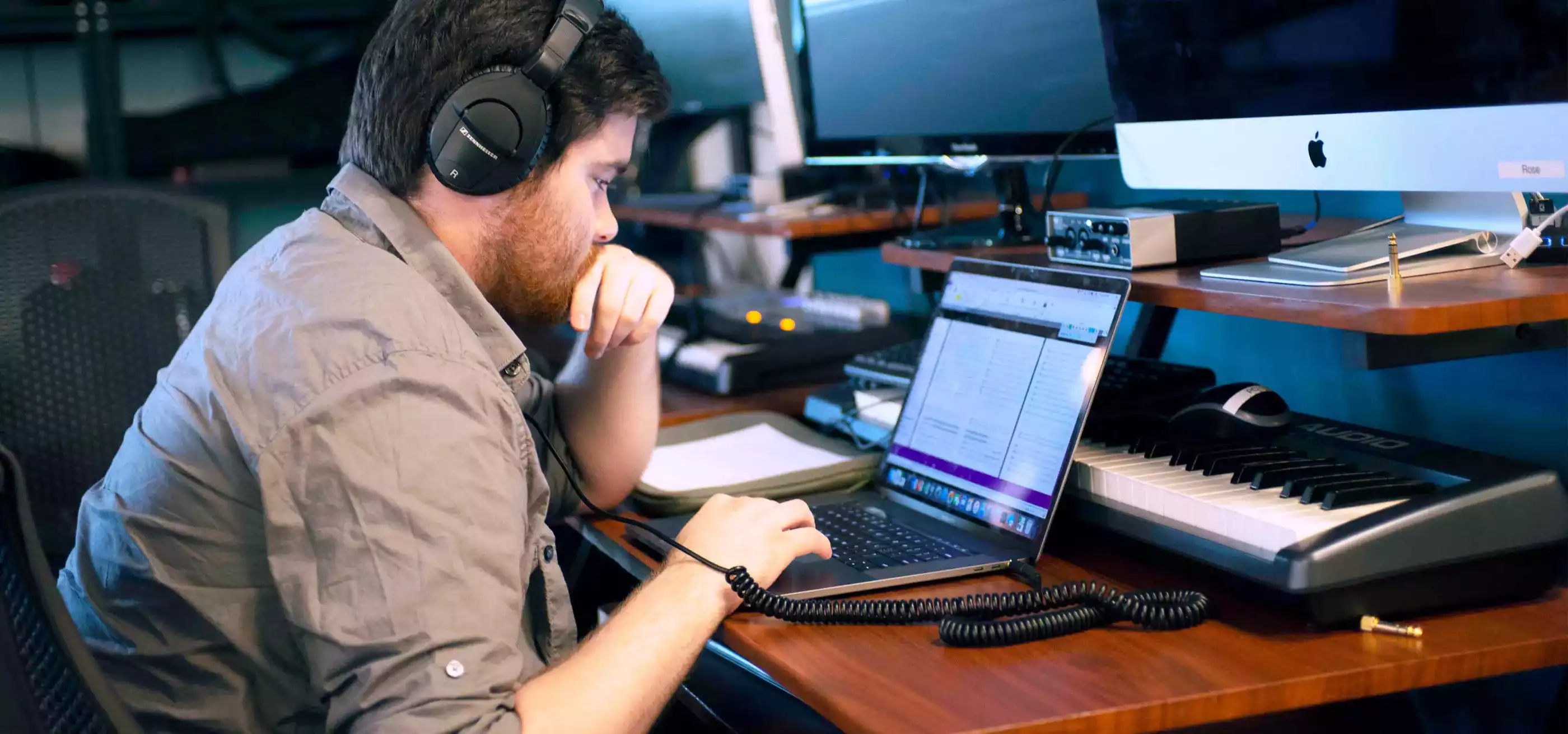As DigiPen moves toward its online and phased approach to instruction for the 2020-21 academic year, faculty from the Department of Music have been devising creative ways to adapt the BA in Music and Sound Design program to keep students healthy and safe. “In some ways, I think what we’ve been forced to do by COVID has actually made us all better at what we’re doing,” says program director Lawrence Schwedler. Some of the structural changes to the program have actually led to unexpected benefits, Schwedler says.
One major change students will see is the format of DigiPen’s Vocal Ensemble course. “Getting a dozen or more people in a closed room and having them all sing together is one of the ultimate super spreaders for COVID, so that’s one thing we knew for sure we couldn’t do,” Schwedler says. Initially, the department thought about putting the ensemble on hiatus for the year. But choir director Stephen O’Bent was determined to find a solution, especially given the crucial social function he believes the ensemble serves in creating cohesion and camaraderie in the DigiPen community.
The answer came through a completely reworked approach to the course that has students record individual tracks of themselves singing, using simple software and their phones. Students then assemble and mix both the audio and video to create grids of students all singing together in a “video choir.”
“To do that requires a whole set of technical skills that are exactly in alignment with our mission as an audio program, so we’re actually really excited about it,” Schwedler says. “We’ve practiced this with faculty over the summer, and even though there’s nothing like the experience of singing in a room with 40 people, you can get a similar kind of chill when you see and hear yourself singing as a part of a choir, and have it sound great in a beautiful video where you can see everyone’s faces.” As an added bonus, the music department will post the video choirs online so that students’ families can see what they’ve been doing in the program.
Another change BA in Music and Sound Design students will see is in private lesson courses. “Because of latency, you can’t play music in time with other musicians unless you have very specific software,” Schwedler explains. Despite that setback, students and instrument instructors will still hold one-on-one lessons online through a slightly modified format. “The only missing piece is we can’t play together, but you can play along with me, or I can play along with you, and it will sound in time to one of us,” Schwedler explains. “Instructors can give you as good a critique online as they do in person just by listening to what you play, talking to you about it, having you listen to what they play, and talking about it.” Faculty have been delivering private lessons during the summer via the internet utilizing the modified approach, and the results have been more than encouraging thus far. “It’s been amazing how effective those methods have been. Some of our instructors are saying their lessons have actually gotten better,” Schwedler says.
One challenge faculty faced in adapting the music and sound design courses for online instruction was access to the campus sound lab. Replete with high-quality microphones, mixers, isolation booths, practice studios, and other expensive recording equipment, students often head to the lab for course assignments and a space to rehearse. As a solution, the music department is sending some of that equipment out to students, wherever they may be. “We’ll be distributing field recorders to all of our students in the cohort and also encouraging them to buy their own if they’d like,” Schwedler says. “We’ve adapted our curriculum for courses that rely on expensive hardware and software so that rather than going into the studio and using a pricey condenser microphone, they’ll be using their field recorder to do some of that at home and in the field.”
That being said, the faculty are also prepared for a phased, hybrid model for students who will still be close to campus, enabling access to the recording studio and practice rooms for students who want it. “We’re developing a hygiene protocol for the rooms, and HEPA or higher air purification units will be placed in the acoustically isolated practice rooms to make sure the air circulation is safe,” Schwedler says.
